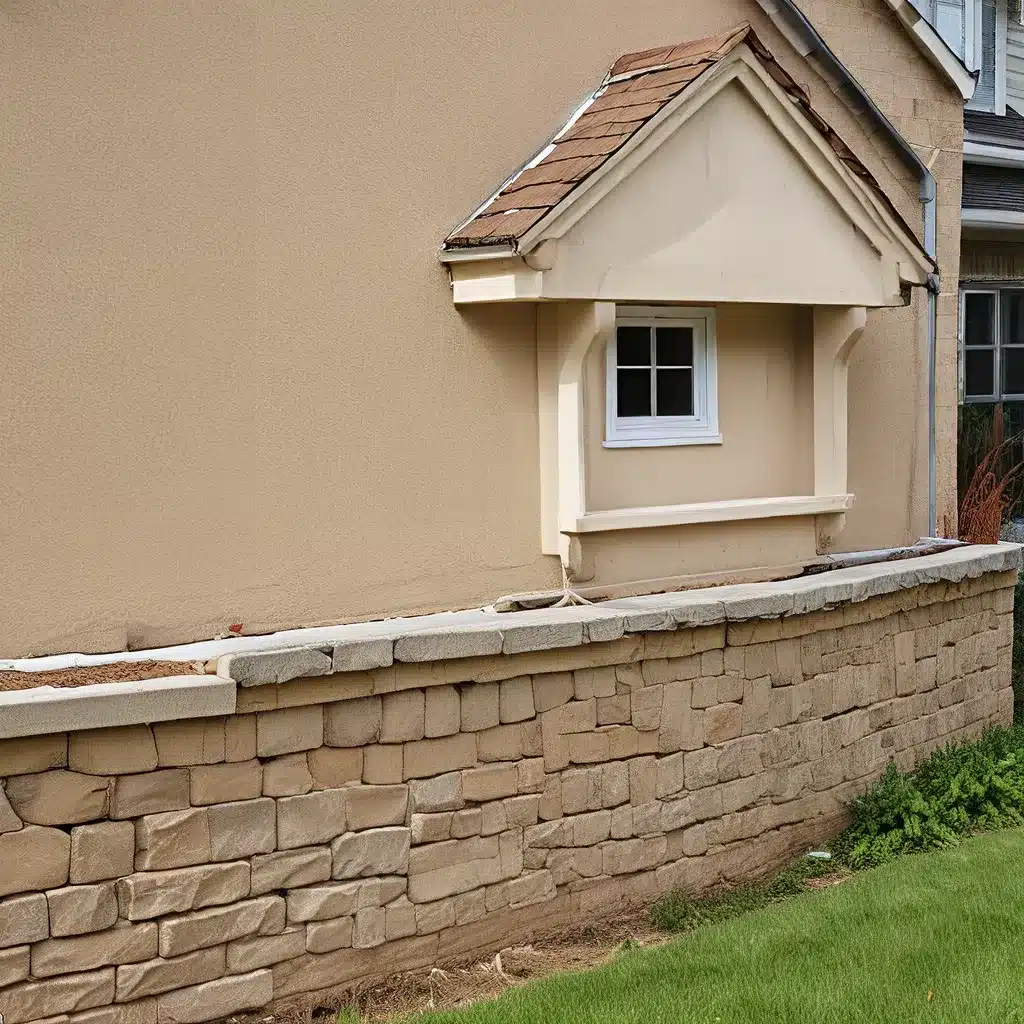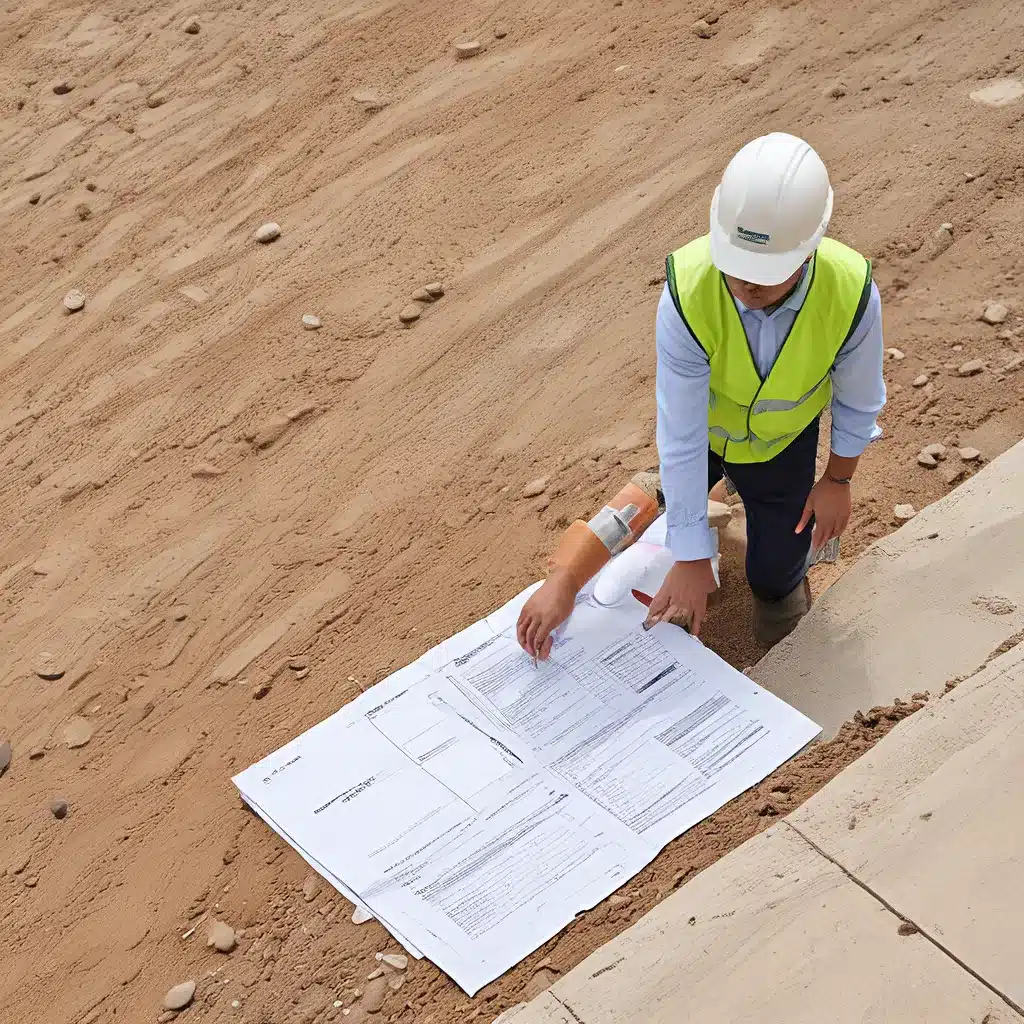
Let me tell you a little story. Just the other day, I was chatting with my neighbor Janice over the fence. As we were catching up, she casually mentioned that her basement had been leaking for weeks. Naturally, I asked if she had called in a professional to take a look. Her response? “Oh, I’m sure it’s nothing to worry about. It’s just a little water, nothing a few towels can’t fix.”
Now, I love Janice dearly, but that kind of casual attitude toward potential foundation issues is exactly what can lead to big trouble down the road. You see, a home’s foundation is the unsung hero of the entire structure – it’s the rock-solid base that everything else depends on. And when cracks, leaks, or other problems start to appear, it’s a clear sign that something more serious is going on under the surface.
That’s why, as a general contractor with years of experience, I always stress the importance of being proactive when it comes to foundation inspections and maintenance. In this article, we’re going to dive deep into the world of foundation concerns, exploring the telltale signs of trouble, the steps you can take to identify and address issues, and why partnering with a professional is so crucial.
The Vital Role of Your Home’s Foundation
Think of your home’s foundation as the sturdy legs that hold up the entire house. Without a strong, stable base, the rest of the structure is at risk of crumbling, cracking, or even collapsing altogether. And let me tell you, that’s not a situation you ever want to find yourself in.
According to the experts at Thomas Engineering Consultants, a strong foundation is essential for ensuring the longevity and safety of your home. But identifying and addressing foundation problems can be a real challenge, which is why hiring a licensed structural engineer to perform a thorough home foundation inspection is so important.
During a foundation inspection, the engineer will carefully examine the interior and exterior of your home, including the basement and crawlspace, and review the surrounding landscape to assess any potential drainage issues. They’ll be on the lookout for visual signs of damage, like cracks in the walls, uneven floors, and signs of water intrusion. Once the inspection is complete, they’ll provide you with a detailed report outlining their findings and recommendations for necessary repairs.
Detecting the Early Warning Signs
Now, I know what you might be thinking: “But I don’t see any obvious cracks or leaks, so my foundation must be fine, right?” Well, I hate to break it to you, but that’s not always the case. Sometimes, the early warning signs of foundation trouble can be a bit more subtle.
According to the experts at All Star Basements, one of the key things to watch out for is changes in your home’s interior, like cracks around windows and doors, or uneven or sagging floors. These can be telltale signs that the foundation is starting to shift or settle.
And let’s not forget about the exterior of your home. Take a walk around the perimeter and keep an eye out for any cracks, bulges, or leaning walls. These visual signs can indicate underlying foundation problems that need to be addressed before they become even more serious.
Another important factor to consider is the soil around your home. As the team at Olshan Foundation Repair in Lakewood, Colorado points out, the type of soil your home is sitting on can have a big impact on the foundation’s stability. Clay-based soils, for example, can expand and contract with changes in moisture, putting immense pressure on the foundation and leading to cracks, settling, or even complete failure.
Addressing Foundation Issues Head-On
So, you’ve done your due diligence and discovered some potential foundation problems. Now what? Well, the good news is that there are a number of steps you can take to address these issues and safeguard your home’s structural integrity.
The first and most crucial step is to partner with a reputable, experienced foundation repair specialist. These professionals have the expertise and tools necessary to accurately diagnose the root cause of your foundation problems and develop a customized solution to fix them.
One of the key things a foundation repair expert will do is assess the overall condition of your home’s foundation, looking for issues like cracks, settlement, or water damage. They’ll use specialized equipment to measure the extent of any problems and determine the best course of action.
Depending on the specific issues at hand, the repair plan might involve things like:
- Hydraulic Piers: These are steel shafts that are driven deep into the ground to provide a stable, load-bearing foundation.
- Epoxy Injection: A process that involves injecting a high-strength epoxy into cracks and voids to seal and stabilize the foundation.
- Carbon Fiber Reinforcement: The application of carbon fiber strips to strengthen and support cracked or bowing walls.
- Drainage Improvements: Addressing water issues by improving the home’s drainage system and diverting water away from the foundation.
And the best part? Many reputable foundation repair companies, like Reading General Contractor, offer lifetime warranties on their work, so you can have peace of mind knowing your home’s foundation is in good hands.
The Importance of Preventive Maintenance
Now, I know what you might be thinking: “But won’t all of this foundation repair work be super expensive?” And you know, that’s a fair concern. Foundation issues can certainly put a dent in your wallet if left unaddressed. But here’s the thing – being proactive about foundation maintenance and inspection can actually save you a ton of money (and stress) in the long run.
Think about it this way: would you rather pay a few hundred bucks for a professional foundation inspection now, or potentially thousands of dollars down the line to fix a major structural issue that could have been caught early on? It’s kind of like getting your car’s oil changed – a little bit of preventive maintenance can go a long way in avoiding expensive headaches down the road.
And let me tell you, the peace of mind that comes with knowing your home’s foundation is in tip-top shape is priceless. No more worrying about the walls suddenly crumbling or the floors turning into a wavy mess. Just the sweet, sweet feeling of security.
So, the next time you’re tempted to ignore that tiny crack or that strange door that won’t quite close right, remember this: your home’s foundation is the unsung hero of the entire structure. And by taking a proactive approach to maintenance and inspection, you can ensure that your castle stands strong for years to come.
Conclusion: Safeguarding Your Home’s Most Vital Asset
At the end of the day, a strong, stable foundation is the bedrock of a healthy, long-lasting home. And as a homeowner, it’s your responsibility to keep a watchful eye on this crucial structural component.
By partnering with experienced professionals, being on the lookout for early warning signs of trouble, and staying on top of preventive maintenance, you can help safeguard your home’s foundation and ensure it remains a solid, dependable base for years to come.
So, what are you waiting for? Take that first step toward foundation security by scheduling a professional inspection today. Your home (and your peace of mind) will thank you.
Related posts:
No related posts.




